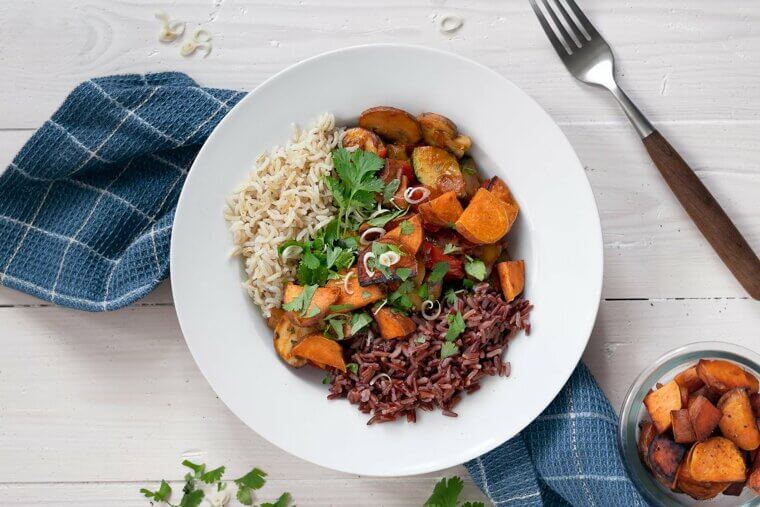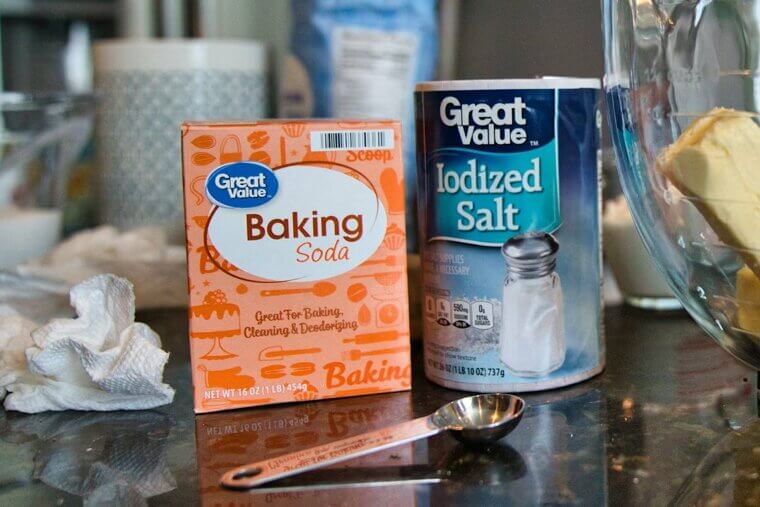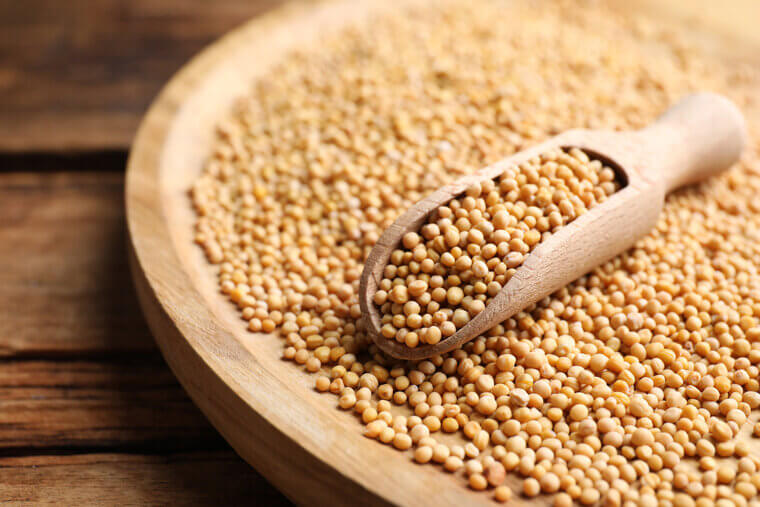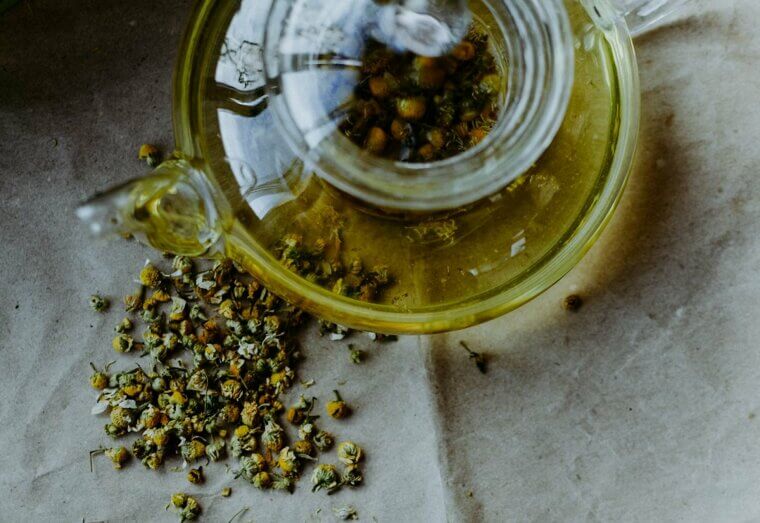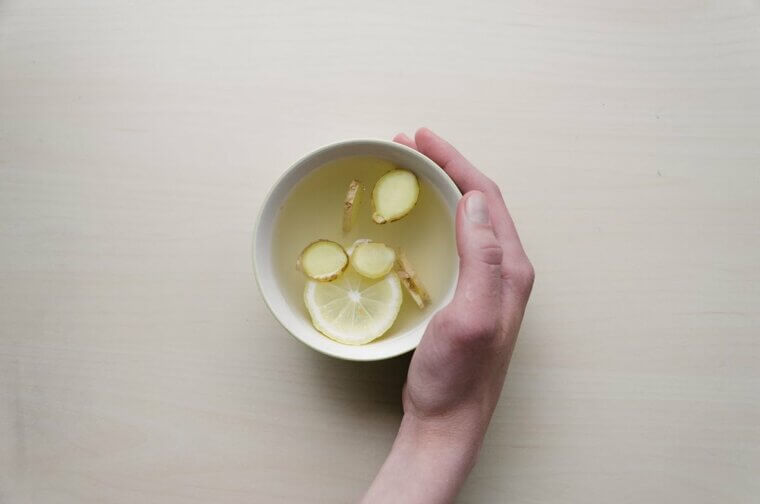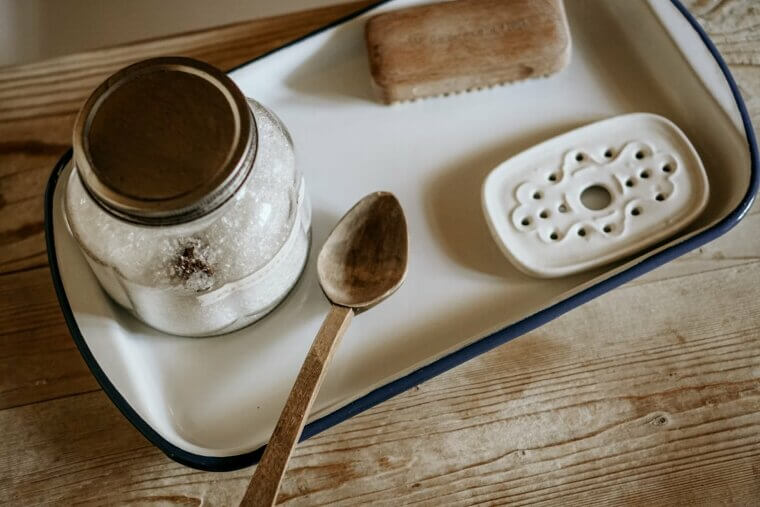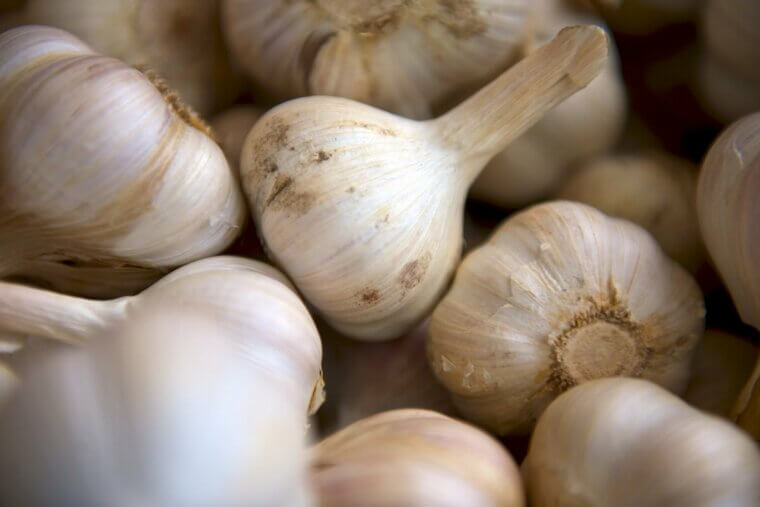It's Time to Ditch the Wellness Influencers
In the past, people didn’t have influencers telling them what to do to stay healthy – they had good old common sense and tried and tested ways of avoiding illness. And it worked! People in the olden days were healthier than us in many ways, and they didn’t have to spend a fortune on health products either. But the old ways have been lost! It’s time to revive them. Here’s a list of 35 tips from the past that could help you in the present.
Protect Your Skin From the Sun
Obviously being out in the sun is important… but trouble arises when you’re out in it too much. Sun without sunscreen can age your skin and put you at risk of skin cancer. You should wear sunscreen with an SPF of 30 or higher every day during the summer, and reapply every two hours when outdoors, especially if you’re sweating or swimming. Don’t forget often-missed spots like your ears, the tops of your feet, and the back of your neck. That’s not all you should do, though… you also need to check your skin regularly for changing moles or spots of discoloration. If you notice anything wrong, go to a doctor.
Prioritize Sleep
People don’t realize how important sleep is. Every time they stay up late partying, they’re making life more difficult for themselves without realizing it. You see, during sleep, the body repairs tissue, solidifies memories, balances hormones, and strengthens the immune system. So if you’ve been getting colds a lot recently, consider that your immune system is suffering from the lack of sleep - but that’s not all you have to worry about. Sleep deprivation is also linked to heart disease, diabetes, and that ever-worrying mental health condition, depression. You owe it to yourself to start getting consistent sleep.
Drink Plenty of Water
There’s so many drinks on the market these days, and unfortunately not all of them are good for you. When you reach for that Coke instead of a refreshing glass of water, you’re pouring sugar into your body, rotting your teeth and contributing to obesity. Water is infinitely better! You’re supposed to have 8 cups of water per day to keep your body in working order, and your grandparents and parents knew it. Try drinking only water just for a few weeks and you might be amazed at how much better you feel.
Eat Colorful Food
This idea is starting to come back into the mainstream, but our parents practiced it best. You should always aim to have colorful food on your plate - for example green peas, orange carrots, and yellow potatoes. Every “color” has unique properties that help your body function better. For example, leafy greens are packed with fiber, while orange sweet potatoes are rich in beta-carotene. Don’t forget to make your dessert colorful as well. Why not try blueberries – they’re thought to improve brain health, plus of course they taste nice.
Move Your Body Every Day
Too many people these days slump down in front of the TV and don’t move for hours. Don’t let that be you! Exercise every day improves cardiovascular fitness, builds muscle strength, and even helps ward off depression. You don’t need to spend hours at the gym to see results, either. Even 30 minutes of moderate activity, like walking, swimming, biking, or dancing, can significantly improve your health and wellbeing. Pick an exercise you enjoy and do it every time you have a spare moment – and really make “enjoy” the key word here. Exercise should be a joy rather than a chore. For example, if you like dancing but don’t think you’re good at it, do it anyway! No-one will care how you look and the important thing is you’re getting your body moving.
Try Honey and Lemon for Sore Throats
When people have a sore throat these days, they tend to head straight to the pharmacy and buy an expensive remedy. But our grandparents had a better idea, one that seems to have totally fallen by the wayside these days. Just use honey and lemon! Honey is a natural anti-inflammatory which helps coat the throat and soothe it. And the acidity in the lemon helps break up mucus and kill pathogens. To make the throat-soothing concoction, all you have to do is mix warm water (or tea), a tablespoon of honey, and a squeeze of fresh lemon juice. Some people like to add ginger or garlic for extra immune-boosting properties.
Manage Stress
There’s one guaranteed way to manage stress – talk to people. Our parents and grandparents knew this, even if they didn’t have all the right words for things like therapy and psychology. The first step is recognizing your stressors – work, money, health issues, relationship tensions, the list goes on. From there, build a stress-management toolkit. Mindfulness practices like meditation, deep breathing, or journaling help ground your thoughts and calm your nervous system. Just 5 to 10 minutes a day of mindfulness can make a big difference. And don’t forget physical exercise, as well. You’d be amazed at the impact 20 minutes in the fresh air can have.
Don’t Eat Too Much Sugar
Remember in the past when your parents would forbid you from eating too many sugary sweets, and you’d throw a massive tantrum? They were onto something. It’s time to cut back on cookie and candy bars, they’re raising your blood sugar and contributing to obesity. Eat fresh fruits instead, because they have natural sweeteners in them, and choose something else to snack on rather than candy – a bag of dried fruits maybe. You might be amazed at the difference it makes over a period of months. Then you can call your parents and apologize for doubting them, they were right after all.
Limit Refined Carbs
Refined carbs cause rapid spikes and crashes in blood sugar, which can lead to cravings, fatigue, and mood swings. Not what you want. Unfortunately, they’re in so many types of food. Refined carbs include white bread, pastries, sugary cereals, white rice, and most packaged snacks. Even things you think are healthy could be hiding them. You’d better do something about it! Switch to brown bread and ditch the white, and start eating whole grains like oats and quinoa. Yes, switching your diet can be a pain, and healthier food is unfortunately more expensive than the unhealthy stuff. But your body will still thank you in the long run.
Don’t Skip Checkups and Screenings
Checkup and screenings are known now as “preventative healthcare” and they’re vitally important. Preventive healthcare is often overlooked, but you need to start taking it seriously. Regular checkups and screenings can catch health problems early - sometimes even before symptoms appear - when they’re easiest to treat. You should be having mammograms, colonoscopies, and vision tests the moment they’re offered to you. Even if you feel absolutely fine, there’s just no knowing what’s hiding in your body. Your parents and grandparents knew the importance of regular checkups, and now it’s your turn.
Build Strong Social Connections
In a world of social media and phones, our face-to-face social connections are diminishing. This is bad news, because social connection boosts your immune system, supports brain health, and can even reduce your risk of chronic diseases like heart disease and dementia. In other words: it’s important to have friends and family. Try making new friends at a club for an activity you enjoy or at your place of worship. It takes effort, there’s no doubt about that, but the rewards are more than worth it in the end. Some experts consider that loneliness poses the same health risk as smoking a pack of cigarettes a day.
Don’t Eat While Distracted
In the past, people didn’t eat in front of a TV screen – they sat around a table and really focused on the food. This has had a resurgence now as “mindful eating”. And it’s come at just the right time, because eating in front of screens or while doing something else can lead to overeating, which in turn leads to obesity. Mindful eating basically just encourages awareness of what you’re eating, why you’re eating, and how it affects your body, helping you develop a healthier relationship with food. It’s especially good for kids – so don’t let them have their phones out at the dinner table.
Baking Soda for Indigestion
Why spend money on antacids when the solution to indigestion could be sitting on your kitchen shelves? Baking soda has been used for centuries to neutralize stomach acid and calm digestive discomfort. All you have to do is dissolve half a teaspoon in a glass of cold water and sip it slowly as the day goes on. However, don’t do this if you have high blood pressure, as it will make the condition worse. Always check with your doctor before trying any home remedy, especially if you have underlying health conditions.
Get Plenty of Fresh Air
People are getting less and less fresh air now. Kids used to go out on their bikes and play until the sun set, but parental fears and increased road dangers have stopped this from happening so much now. And yet, there are so many good reasons to be outside. Natural sunlight helps your body produce vitamin D, which is essential for bone health and immune function, plus it helps boost your mood. If you’re thinking there’s not enough fresh air and sunlight in your life, make a habit of going outside every single day and soaking it all in.
Mustard Plaster for Chest Congestion
This technique is almost never used anymore, yet it really works. You can make a mustard plaster by combining ground mustard seeds, flour, and warm water, then applying the mixture to a cloth placed on your chest. Don’t let the mustard come in direct contact with your skin, as it can cause burns. The mustard stimulates blood flow to the skin and underlying tissues, which may relieve congestion and reduce pain. The warmth of the plaster also helps loosen mucus in the chest, making it easier to cough out. Always consult your doctor before trying traditional remedies like this.
Maintain a Healthy Weight
This is a skill that’s been forgotten over the years, but is vitally important. You should always be maintaining a healthy weight, because excess body fat increases the risk of heart disease, type 2 diabetes, stroke and even certain cancers. Plus, some people simply feel bad in their body when they put on a lot of weight. So here’s the answer: Don’t go on a crash diet – instead, small, consistent changes make a big difference. Swap sugary drinks for water, cook more meals at home, and find physical activities you enjoy doing.
Keep Your Gut Healthy
People don’t pay attention to their gut, and they should. A healthy gut can reduce inflammation, support your immune system, and help prevent chronic diseases. To support gut health, focus on eating a variety of plant-based foods, including vegetables, fruits, legumes, nuts, seeds, and whole grains. And don’t forget that fermented foods like yoghurt also have probiotics that can strengthen your gut flora. But helping your gut is also a case of cutting out things that are bad for it. You should try and limit processed foods, artificial sweeteners, and alcohol. Yes, it will probably be a big change in diet, but it’s what people have done for decades now.
Peppermint Oil for Headache Relief
Do you have a headache? Don’t reach for the ibuprofen—try peppermint oil instead. It smells great, and it may help. Its main ingredient, menthol, is known for relieving headache symptoms. Just place a drop on your fingers and gently rub it into your temples, forehead, and the back of your neck. It’s an easy way to ease discomfort without the side effects of over-the-counter medications. Be careful not to get it in your eyes, as it can cause irritation. As always, check with your doctor before using alternative remedies, especially if you have ongoing health issues.
Strength Train a Couple Times a Week
Your dad probably partook in strength training when he had a spare moment, but the practice seems to have fizzled out as people ended up with busier and busier lives. Yet it can be easily done at home with weight, resistance bands, or bodyweight exercises like squats. Just remember to stretch beforehand – that’s very important. Once you get started, you should find your body improving straight away: Strength training burns calories, reduces the risk of falls and fractures in older people, and even improves the mood by releasing endorphins.
Avoid Smoking
Smoking is one of those things society thought it got rid of, but it’s slowly making its way back again. This is bad news, especially for people who suffer due to secondhand smoke. So if you’re lighting up a cigarette every day, it’s time to stop – and don’t worry, your healthcare provider can help you do this. It’s amazing the change stopping smoking will make to you. The benefits begin almost immediately: it's said that within 20 minutes, heart rate and blood pressure drop; within weeks, lung function begins to improve; and within a year, heart disease risk drops dramatically. There's plenty of reasons to quit!
Limit Drinking
Your parents knew the dangers of drinking – they were the generation who cut down on it. Excessive drinking increases the risk of liver disease, high blood pressure, certain cancers, and cognitive decline. It can also impair sleep and contribute to weight gain. The general guideline is no more than one drink per day for women and two for men – but frankly, some people think you should stop drinking altogether for the good of your health. If you’re worried that you’re drinking far more alcohol than is good for you, you should go and see your doctor – they may be able to get you into a support group.
Chamomile Tea for Digestion
Having digestive issues? Chamomile tea may be just the sort of thing you’re after. The Ancient Greeks and Romans used it, and it’s still a remedy here in the present day. A nice cup of chamomile tea can calm you down if you’re stressed, but it’s also very good for the stomach thanks to its anti-inflammatory and antispasmodic properties. And to make it, all you have to do is steep dried chamomile flowers in hot water for 5 to 10 minutes. It smells nice, tastes nice, and does nice things to the body!
Wash Your Hands Regularly
If you knew how many people left the toilet without washing their hands, you’d be disgusted. Some people’s parents just didn’t teach them the importance of it. So make sure you handwash whenever it’s needed, including after touching areas lots of other people have touched. Use soap and water and scrub all parts of your hands - including between fingers, under nails, and around your thumbs - for at least 20 seconds. If soap and water aren’t available, an alcohol-based hand sanitizer (with at least 60% alcohol) is a good backup. It helps protect your body from all those nasty germs put there by the non-handwashers of the world.
Ginger Tea for Nausea
Ginger has been used for thousands of years across various cultures - especially in Asia - as a powerful natural remedy to ease nausea, motion sickness, and digestive discomfort. Traditional healers of the ancient world recognized ginger’s warming and soothing effects, and modern-day research has confirmed they were right. It’s considered especially good for morning sickness when you’re pregnant. You can make your own ginger tea by simply slicing or grating fresh ginger root, and then steeping it in hot water for up to 15 minutes. Some people add honey or lemon for extra taste and extra soothing ability.
Practice Good Oral Hygiene
Oral health is often overlooked but it’s essential to overall wellness, more than a lot of people realize. Poor dental hygiene can lead to cavities, gum disease, and tooth loss, but it’s also linked to more serious health issues such as heart disease, diabetes, and respiratory infections. So you should brush your teeth at least twice a day, and floss to help fight gum disease and bad breath. You should also see your dentist regularly and listen to whatever advice they give you. And don’t forget, drink plenty of water! This helps wash away the nasty little food particles that end up in your mouth.
Practice Mindfulness
People practiced mindfulness more often in the days without phones, although they may not have called it that. Mindfulness is the simple practice of paying full attention to the present moment and not allowing judgmental thoughts in your head. By focusing exclusively on your breath, bodily sensations, or surroundings, mindfulness helps quiet a chaotic mind and reduces stress, anxiety, and negative thought patterns. And over time, mindfulness helps you respond to difficult situations with calmness rather than reacting impulsively, thus improving every aspect of your life. There are many mindfulness apps on the market, but frankly you can manage without your phone needing to be involved.
Get a Lot of Protein in Your Diet
Protein is essential for building and repairing tissues, supporting immune function, and maintaining muscle mass – all things that are very important for keeping the body healthy into old age. Protein also helps keep you full and satisfied as you eat, which can help prevent overeating and support healthy weight management, avoiding obesity. Basically, you should be having protein with every meal. A lot of people go for chicken as their main source of protein, but for vegetarians and vegans there are a lot of other options: beans, lentils, and tofu for example.
Reduce the Amount of Coffee You Drink
Some people swear by coffee, and to be fair it does have a lot going for it. It can boost energy, improve focus, and even lower the risk of certain diseases. But like most good things in this world, moderation is key. Drinking too much coffee - typically more than 3 to 4 cups a day for most people - can lead to a range of physical and mental health issues. Too much caffeine can cause anxiety, for a start, but that’s not all. It can also make you pee a lot, which is the last thing you need. As if that all wasn’t bad enough, some people report getting withdrawal symptoms when they try to cut back on coffee, a sign that they’re becoming dependent on it. And you don’t want to become dependent on anything.
Onion Poultice for Colds
This old-fashioned remedy still works great. All you have to do is steam some onions, which you probably had lying around the house anyway, wrap them in a clean cloth and place them on the chest. Then put a towel on top of that to retain heat. The vapors from the onions are thought to open airways and loosen the mucus. So you’ll be coughing a lot – but things will come out. Some people also placed onions in their socks to try and cure and a cold! Unlike with the poultice idea, though, there’s no guarantee that an onion in the sock will work.
Use Epsom Salt Baths
A lot of people swear by Epsom salt baths. When added to warm bath water, Epsom salt is believed to help relax muscles, reduce inflammation, and ease stress. While the scientific evidence on how and why it works is debated, many people still report feeling relief after soaking in an Epsom salt bath. It could be a placebo effect… but not necessarily. All you have to do is fill your bath with 1 or 2 cups of Epsom salt, and lie down in there for 20 minutes or so. Some people report that it cures all their aches and pains instantly. Always check with your doctor before trying any home remedy, especially if you have underlying health conditions.
Drink a Lot of Apple Cider Vinegar
Apple cider vinegar has come back into the mainstream recently, but it’s been around for centuries. It’s even thought that the Ancient Egyptians used it to aid digestion – and from there it went all over the world. Many people believed that taking a tablespoon of raw, unfiltered apple cider vinegar mixed with water before meals could help balance stomach acidity and promote the breakdown of food. Try it and see what you think! It definitely is considered to support the growth of good gut bacteria. Never try the undiluted kind of apple cider vinegar, though, it will hurt your esophagus. Always check with your doctor before trying any home remedy, especially if you have digestive issues or other medical conditions.
Try Saltwater for Sore Throats
Here’s another remedy you can try for sore throats. Saltwater is thought to reduce swelling, relieve pain, and create a less hospitable environment for bacteria and viruses in the throat. And because almost everyone has salt and water to hand, you don’t have to spend any money trying out this remedy. Just get half a teaspoon of salt dissolved in 8 ounces of warm water, and gargle it. Make sure to spit it out, it won’t taste nice when you swallow it. Saltwater in the mouth also work if you’re aching or bleeding after having dental treatment.
Willow Bark for Fever
Willow bark contains the same basic ingredients that go into aspirin, but it’s cheaper than aspirin. In the olden days, people traditionally brewed willow bark into a tea to help bring down fevers, relieve headaches, and ease muscle aches. The remedy worked by reducing the body’s inflammatory response and lowering fever, helping the immune system focus on fighting infection. However, pregnant women should not use this remedy, and you should also look up how it will interact with other medications you’re taking before trying it out.
Eat a Lot of Garlic
Grandparents knew that garlic was good for you – maybe yours tried to put it into every dish? But they were right to, because garlic is amazing. The key to its power lies in a compound called allicin, which is released when garlic is crushed or chopped. Allicin has strong antimicrobial, antiviral, and anti-inflammatory effects, making garlic effective against common colds, respiratory infections, and even some bacteria. So the next time you have a cold, make yourself a garlic meal first, and you might be amazed by how effective it is.
Don’t Skip Breakfast
When you were a kid, your parents probably made you eat breakfast before you hurried off to school. And that’s exactly what they should have been doing, because they weren’t wrong when they said breakfast was the most important meal of the day. After hours of sleep, it provides the body and brain with essential nutrients and energy to start the day right. Skipping breakfast can lead to low blood sugar, causing fatigue, irritability, and difficulty concentrating – all bad things for school or work.





